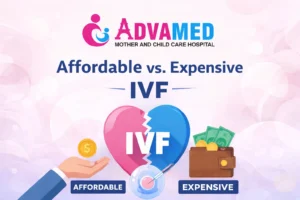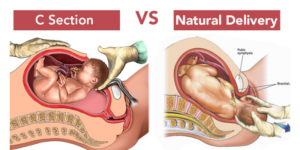Every parent wants the best for their child’s health, but sometimes minor issues can signal something that requires specialized care. Pediatric surgery isn’t just for emergencies — it addresses a range of conditions, from congenital anomalies to injuries or growth-related concerns.
Knowing the signs that indicate a child may need surgical attention can make all the difference in timely treatment and better outcomes. In this guide, we’ll explore the key situations and warning signs that every parent should be aware of when considering pediatric surgery.
Choosing the right children’s surgery team is very important. The experts at Advamed specialize in pediatric care and can make a big difference in your child’s treatment and recovery.
What Is Pediatric Surgery?
Pediatric surgery is a specialized branch of medicine that provides surgical care for babies, children, and teenagers. Pediatric surgeons undergo additional years of training to understand how children’s bodies differ from adults. They are experts in child anatomy, healing patterns, and safely administering anesthesia to young patients.
There are two main types of pediatric surgery:
- Emergency Pediatric Surgery
This deals with urgent health problems that need immediate attention. Examples include:
- Appendicitis
- Trapped hernias
- Serious injuries from accidents
These situations require prompt medical care to ensure a child’s safety and well-being.
- Elective Pediatric Surgery
These are necessary but non-urgent procedures. They are planned to correct conditions and support long-term health. Common examples include:
- Undescended testes
- Birth defects such as cleft lip
- Recurring tonsillitis
At Advamed, our pediatric surgery team is highly experienced. We work closely with your child’s doctor, anesthesia specialists, and other child-care experts. Together, we ensure treatment is safe, gentle, and tailored specifically for children. Whenever possible, we use minimally invasive techniques to support a quicker, more comfortable recovery.
Common Conditions That May Require Pediatric Surgery
Some signs often mean a child needs a surgical check-up. Here are key examples by body area
Digestive Tract Issues
- Ongoing belly pain, vomiting, or swelling can be warning signs. These symptoms may point to serious conditions like appendicitis or a blocked intestine. Such problems often need quick surgical care.
- A hernia shows as a visible bulge in the groin or belly button. The bulge often gets bigger when a child cries or strains. While some hernias close on their own, others need surgery to prevent dangerous complications.
- Pyloric stenosis affects young babies. They experience forceful vomiting and cannot gain weight. This condition needs a small operation. Surgery provides a complete cure and lets babies grow normally.
Genitourinary Conditions
- If a baby’s testes have not moved down by 6-12 months, surgery is advised. This procedure helps protect future fertility and lowers the long-term risk of cancer.
- A swelling in the scrotum or groin that remains after age one often needs surgery. This procedure fixes the problem and prevents future complications.
- Frequent urinary infections or trouble urinating can signal a birth defect. These problems sometimes require a surgical procedure to correct them.
Head and Neck Concerns
- Frequent tonsil infections or enlarged adenoids can cause problems. If your child has constant sore throats, loud snoring, or breathing pauses during sleep, surgery might be recommended. Removing the tonsils or adenoids often brings lasting relief.
- Lumps in the neck that don’t go away with medicine often need a small operation. This minor surgery safely removes the cysts.
Congenital (Birth) Defects
- Birth conditions such as cleft lip, spina bifida, and anal blockage are usually found soon after birth. Surgery is performed to correct these issues. This early intervention helps ensure the child can develop and grow normally.
- Heart conditions like VSD or ASD need a specialist’s check. A pediatric heart surgeon will evaluate if repair is needed for proper heart function.
Trauma or Injury
Injuries from accidents or burns sometimes require an operation. Pediatric surgeons specialize in repairing damaged skin and bones. Their focus is on helping children heal with the least scarring and the best possible recovery.
Pediatric Surgery Signs Parents Should Watch For
Parents should see a doctor if their child shows any of these pediatric surgery signs. A surgical consultation may be needed if the child has:
- Ongoing belly pain or swelling
- Vomiting blood or dark, grainy material
- A visible lump in the groin, belly, or neck
- Trouble urinating or having bowel movements
- Frequent infections that medicine doesn’t help
- Not growing or gaining weight as expected
- Breathing problems, especially during sleep
- Bluish skin or constant tiredness (possible heart issue)
- Unusual birthmarks or small pits on the back
Early diagnosis and timely surgical care often prevent complications and improve outcomes.
How Pediatric Surgery Differs from Adult Surgery
Children’s bodies are unique. They respond differently to medicine, pain, and recovery than adults do. Important differences involve:
- Gentle Techniques – Surgeons use very fine tools and make small cuts.
- Quick Healing – Children usually recover faster with the right care after surgery.
- Safe Anesthesia – Specialists carefully choose the right medicine dose for each child.
- Comforting Spaces – Hospitals like Advamed have friendly areas with nurses and equipment made just for kids.
How to Prepare Your Child for Surgery
Getting ready can calm nerves for both you and your child. Here are helpful steps to take:
- Talk Simply – Use easy, calm words to explain what will happen.
- Bring a Favorite Item – A beloved toy or blanket can provide great comfort.
- Follow Fasting Rules – It is very important to follow instructions about not eating or drinking before the operation.
- Plan for Rest – Your child will need a quiet place to recover, with some gentle movement as advised.
- Pick a Specialized Hospital – Choose a center like Advamed, where the entire team is trained to care for children.
Why Choose Advamed for Pediatric Surgery
At Advamed, we put children first. Our team of children’s surgery experts combines skilled medical care with genuine compassion. Here is what makes our care different:
- Expert Surgeons – Our doctors are specialists in both traditional and modern, gentle surgery methods for children.
- Child-Focused Facilities – We have intensive care units and recovery rooms designed just for young patients.
- Advanced Technology – We use the latest imaging and diagnostic tools for precise and accurate assessments.
- Tailored Pain Management – Our anesthesia and pain control plans are specifically designed for children’s needs.
- Family Partnership – We involve parents in every decision and keep you fully informed, building trust at all times.
From simple hernia fixes to complex newborn operations, Advamed delivers safe, complete care. We provide this in a comforting environment built specifically for children.
Key Takeaway for Parents
Not every symptom needs an operation. But ignoring ongoing problems can make treatment harder later. The best plan is to watch carefully, see a doctor early, and rely on a specialized children’s health team.
If your child’s doctor recommends a surgical consultation, see it as a positive step. This is about planning for your child’s health. With proper diagnosis and the right care, most children recover completely and return to happy, healthy lives.
Final Word
Knowing the signs a child might need surgery helps parents act fast and with confidence. The dedicated children’s surgery team at Advamed provides expert, kind, and proven care. We believe every young life deserves a healthy and happy beginning.
FAQs
If the pain is severe, ongoing, or comes with fever or vomiting, see a doctor. These signs can mean something serious like appendicitis that needs immediate care.
Our care is fully child-focused, from our specialized surgeons to our kid-friendly facilities. We partner with parents to create a gentle and trusting experience for your child.
Yes, pediatric surgery is very safe. Surgeons are specially trained to care for children, using gentle techniques and anesthesia made just for their small bodies.
- Common procedures include placing ear tubes, removing tonsils, and repairing hernias. These operations are routine and help children get healthier.
We create a comforting environment with friendly staff and spaces designed for kids. Our team uses simple words to explain everything and help your child feel safe.












